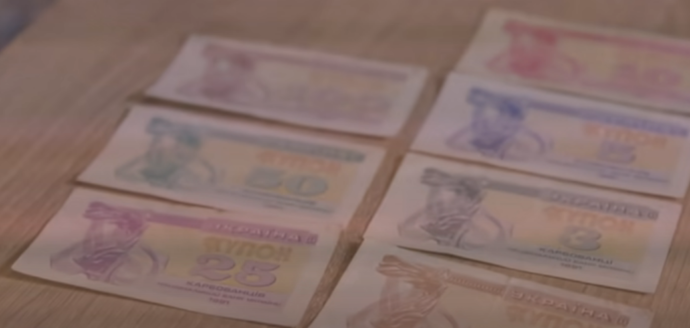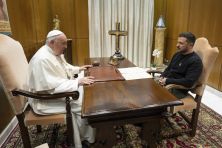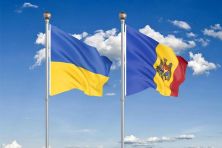The year 1993 was remembered by the first cell-phone call of the President of Ukraine Leonid Kravchuk. Also that year, many Ukrainians had to endure the loss of savings and inflation.
We tell about it in the new issue of the documentary series “30 years of Independence” on the UA TV channel.
Mobile phones – heavy and probably similar to field telephones – have been used around the world for at least a decade. In Ukraine, the historic moment comes in 1993. The first subscriber is the president. It was a Motorola device weighing almost half a kilogram.
“It was not just a call, for me it was history” – recalls President of Ukraine (1991-1994) Leonid Kravchuk.
The cell phone was tied with a ribbon, and the president planned to cut it, as if hinting that the era of corded telephones was coming to an end. However, this was not the case at all. In 1993, USD 2,000 had to be paid for a massive cell phone.
The telephone “boom” will happen only in 7 years, in 2000, when a million of subscribers would be registered in Ukraine, and technologies would start becoming cheaper. Meanwhile, the cell-phone was an attribute of exclusively people of status.
Besides, in 1992, the government promised for the first time to return money from Soviet savings books.
Legend of Soviet and Ukrainian football, FC “Dynamo” player Leonid Buryak recalls that in the 90’s even the legends had a hard time. While building a coaching career in the United States, he lost a considerable amount of savings in his homeland.
“A significant amount remained on these books. I think there were 50-60 thousand Soviet rubles” – says head coach of the national football team of Ukraine (2002-2003) Leonid Buryak.
These thousands could provide him with a safe life into old age.
“All the money that the Soviet people kept in their savings books was the property of the Central Committee of the CPSU. All the money stored there was automatically transferred to the Central Committee, and the body was to decide where to use the money. Most of this money went to finance the military-industrial complex. Politicians tried to persuade people that yes, we will repay everything, we will do everything, but they understood that it was unrealistic” – said Oleksandr Okhrimenko, economist and president of the Ukrainian Analytical Center.
There will be several more attempts to return deposits. In 2000, the Ukrainian government recognized 52 million saving books for an astronomical sum of 132 billion. At the old rate, this would be enough, for example, to repair all roads in the country at once.
The state cannot distribute such money to people when it is not enough for roads. They would offer UAH 50, which offended many. Angry depositors would address he courts, but large compensation were not obtained.
In the summer of 1993, what would later be called galloping inflation began. The ruble was constantly depreciating and by the fall falls by a terrible 10256%.
Because of this, the NBU introduces new banknotes – initially denominations of two thousand and five thousand. And by the end of the year – a coupon denomination of one hundred thousand is already in circulation.
Also in the summer of 1993, residents of industrial cities in eastern and western Ukraine will be united by the largest strikes in the history of the state. They were started by Donetsk miners who demanded salary payments. Miners from Luhansk, Dnipropetrovsk, Lviv regions and Volyn would immediately join them. 230 out of 250 mines went on strike. The strike that began as a hunger riot would soon change the entire Ukrainian political environment.
In addition, having not managed to divide the Black Sea Fleet for two years of separate life, Ukraine and Russia were simultaneously fighting for the territory of Crimea.
In July 1993, Moscow made official claims to Sevastopol. In a resolution of the Russian parliament, it is called the “City of Russian Federal Status.”
Among the deputies who voted, none opposed or abstained.
After Ukraine’s complaint, the UN would stand up for Ukraine.














